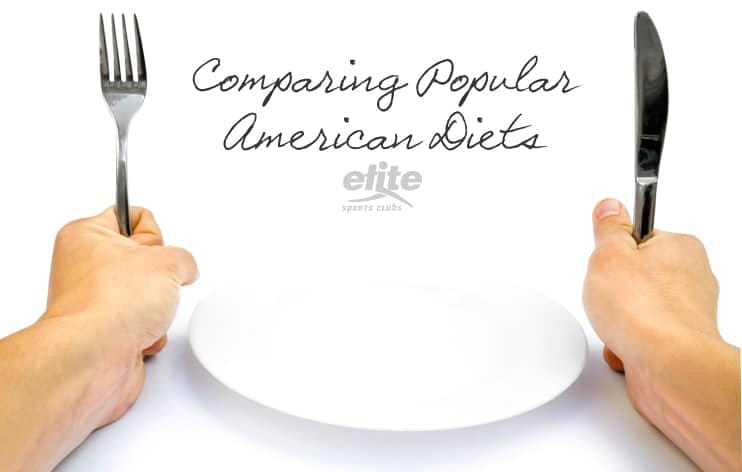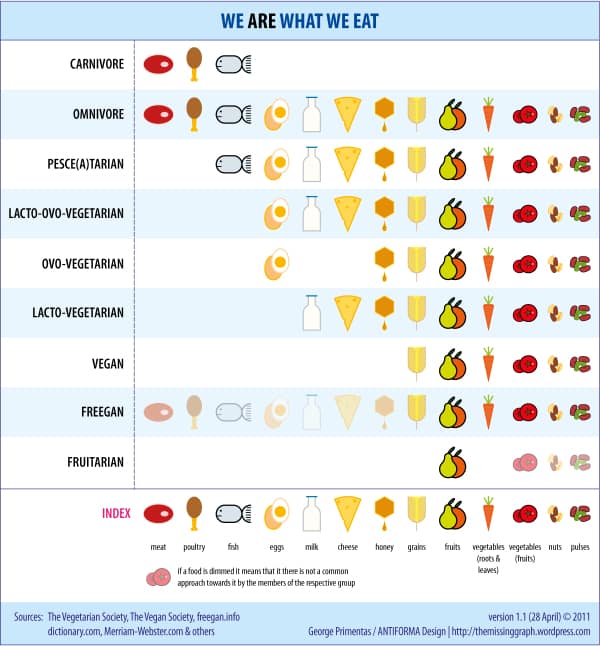
It seems that Americans are either continuing to have diets that are not the healthiest or they are making concerted efforts to eat as healthy a diet as possible. Thus many people are not only trying to eat organic foods, but are actually trying diets like vegetarian, vegan, gluten free, whole foods, or one of the latest diets, the Paleo diet, named after what is felt was the diet of Paleolithic Man.
Two food experts, Sarah Dusseau, healthy food chef and coordinator of Fit Foot Trainer at Elite Sports Clubs, and the Elite Sports Clubs’ dietitian Rita Larsen, RD, CD, who works with families on healthy eating, gave their expert advice on healthy eating and special diets.
Larsen commented, “Unfortunately our American diet is still too high in sugars, unhealthy fats, and salt. Often our portion sizes are also too large. Obesity is on the rise for all age groups, and most professionals feel that the change that needs to be made is that of ‘planning’ for adequate intake throughout the day without overeating.”
Larsen gave some examples of good food planning, “The best diet for active adults and children is adequate intake of calories that will support our activities without being more than that.”
She observed that “most nutrition experts will also recommend eating natural foods instead of packaged and processed foods. It is best for digestion if foods do not contain additives that may take a while to be processed through the body. Many healthy eaters today are choosing their foods from farmer’s markets, natural food stores, and from farms that do not use pesticides.”
Larsen explained the Gluten free diet. “For years, it has been used for Celiac disease, an autoimmune disorder, and when gluten is eaten, the body triggers an attack on the intestines. Damage occurs overtime, and nutrients can’t be absorbed. Research shows that even tiny amounts of gluten trigger an immune-mediated attack on the lining of the large intestine and bowel. For someone with celiac disease, it is important not to have exposure to gluten. Other people have also found the use of the gluten free diet to be of benefit to normal digestion, and that is, those that are gluten sensitive or intolerant, and those that have a wheat allergy. On a trial and error basis, many individuals have tried the gluten free diet and found it to be extremely beneficial to their digestion and absorption. They feel less bloated or full after a meal and more energetic in the coming hours.”
“Gastroenterologists explain that gluten is a chief protein found in wheat, barley, and rye. It is a group of proteins and not a single component, but gluten is the general term. Gluten is responsible for the way dough is able to rise when you put yeast into it. It is the structure of gluten that makes baked goods light and crispy. Without the gluten, baked products will tend to be a heavier product and less likely to rise in the baking process. The Academy of Nutrition and Dietetics confirms that sensitivity to gluten and its byproducts is a real concern for gastrointestinal disorders as well as those with any form of gastric distress. Trial on a gluten free diet can be done by elimination of the suspected irritants to see if this brings relief. It is also safe for children.”
“Children and adults are also finding some potential benefits to the vegetarian and vegan diets. Vegetarians, of course, eliminate most sources of animal protein and fats; and animal byproducts. According to the USDA in 2012, 5% of the population is vegetarian, (no meat, poultry, and seafood). Individuals can meet ‘the recommended dietary allowances for nutrients, through a vegetarian diet.’ No matter what category of vegetarian you fall into, it is important to choose a variety of foods; including some whole grains, fruits, vegetables, legumes, nuts and seeds. Dietary concerns for nutrients include Calcium, Iron, Vitamin B12, and Vitamin D.”
“A vegan diet, even more restrictive, is becoming a dietary choice by younger and younger people. The diet is more restricted and follows a pure plant-based diet with no animal flesh, eggs, or dairy products. They also exclude honey. Proponents of the vegan diet say that they ‘feel better’ on this regimen; ‘less full, more energy, greater ability to think.’ Many dietary experts have weighed in on this dietary orientation in an effort to be helpful and to assist in finding plant sources of needed nutrients. Research regarding the athletic performance of individuals on a vegan diet, has showed that the athlete has actually improved in their strength and ability for longer lasting activity.”
Dusseau also added that there is a Pescatarian diet, which adds the consumption of fish to the vegetarian diet. More recently is the Paleo dietary regimen, or Paleolithic or Caveman diet. Supporters enjoy foods commonly eaten in early times; lean meat, foul, fish, vegetables that were grown then, fruits, nuts, seeds, and the like. Meat products today are not quite the same as those available the time periods the diet is modeled after, like wild animal meats, nevertheless individuals can still create the diet they feel is right for them. This diet is also considered gluten free; and free of any environmental additives found in grocery store processed foods. This diet is recommended to those who are in need of reducing their levels of cholesterol and sugar.

Larsen observed, “Fortunately for those who follow these special diets, many restaurants caterer to the choices of the vegan, vegetarian, and Paleo diet. In addition, food stores have many choices of food products for the gluten free diet, as well as, those requiring specialty products.”
The paleo “to go” food program, personally prepared by Sarah Dusseau, who said she uses only locally grown organic ingredients, grass-fed, pasture raised beef and poultry, is Elite Sports Clubs’ new Fit Food Trainer program. Dusseau said, “I make meals which use no processed flour and nothing refined and follow basically a Paleo diet where I buy as much food as I can locally, using organic greens and sprouted grain for my carbs–even my wraps–and grass-fed pasture raised meat.”
Dusseau added that roots and fungi are also part of the Paleo diet. She said that the diet excludes potatoes, grains, legumes, refined sugar and processed oils. She emphasized that it is centered on commonly available modern foods. The new Fit Food Trainer program offers a la cart meals, including breakfast, lunch and dinner and are offered to the general public at the Brookfield & River Glen locations.
Larsen concluded that “a good suggestion would be to do a personal trial for a couple of weeks to see which diet works best for digestion, health, or even weight loss.”
Need some help determining the best healthy diet options for you? Schedule an initial consultation with our Registered Dietitian and Nutrition Counselor.
This article was written by Arlene Becker and previously published in Modern Health and Living, a Milwaukee publication dedicated to health and nutrition that focuses on traditional, complementary and integrative medicine.
